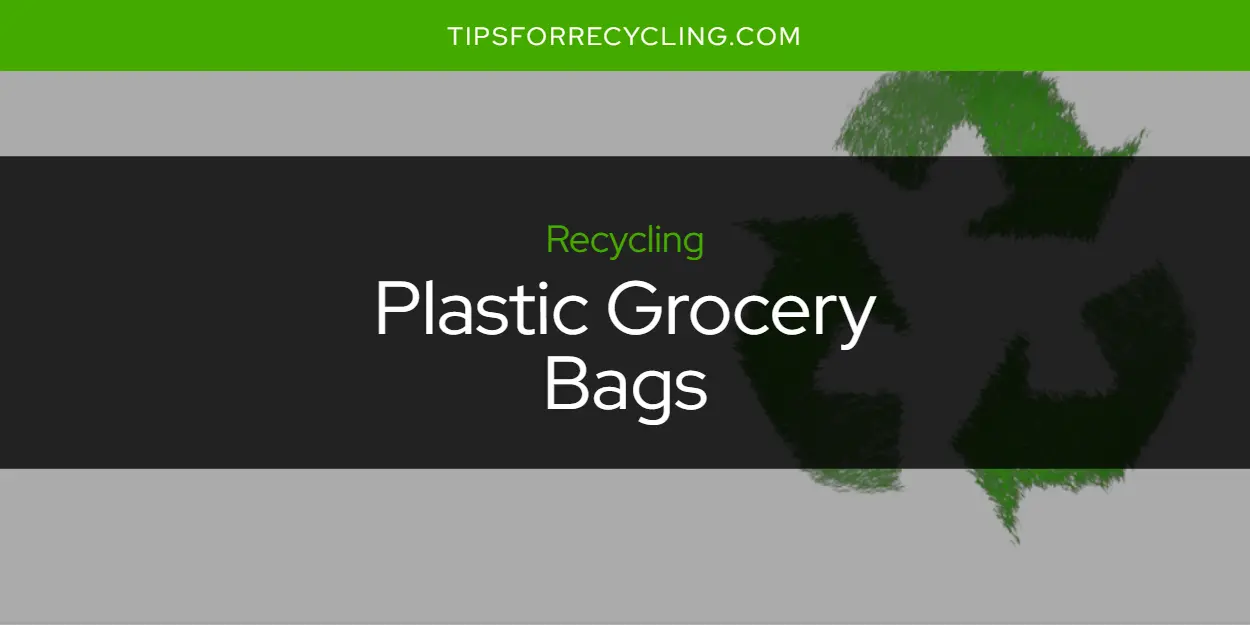Are Plastic Grocery Bags Recyclable?

Plastic grocery bags are among the most commonly used and discarded items in our everyday lives. But are plastic grocery bags recyclable? The answer is yes! Most plastic grocery bags are 100% recyclable and can be recycled at many local retail stores, supermarkets and recycling centers.
See the below map for locations where you can recycle plastic grocery bags.
Unfortunately, you cannot make money directly from recycling plastic grocery bags. However, you can help reduce the amount of waste sent to landfills, which could have a positive impact on the environment and your community.
Similarly, see if you can recycle paper grocery bags.
Most plastic grocery bags are made from polyethylene, a type of thermoplastic polymer resin which is derived from petroleum or natural gas. It is strong and flexible which makes it ideal for carrying items like groceries and other items that need to be kept clean and dry.
Similarly, see if you can recycle plastic laundry baskets.
Many local retail stores, supermarkets and recycling centers accept recycled plastic grocery bags for recycling programs such as curbside pickup or drop-off bins. Additionally, some municipalities offer special programs to recycle specific types of plastics such as shopping bags or produce sacks through dedicated collection sites or kiosks located throughout the city or county where residents can safely dispose of their used plastics for reuse by others in the area. Additionally, some companies also provide mail-in services that allow consumers to collect their used plastics over time and send them in bulk to be recycled responsibly into new products with minimal waste or energy usage involved in the process.
Similarly, see if you can recycle plastic garbage bags.
Yes, depending on the store you visit they will likely accept different types of plastics for recycling including common items such as produce sacks, shopping bags, food wrappers and more! Be sure to check with the store before donating your used plastics for recycling; this way you can ensure that your donation is accepted properly and that no hazardous materials will be added to their overall waste stream when they discard it later down the line!
Similarly, see if you can recycle plastic trash bags.
Recycled plastic grocery bags can be transformed into new products such as benches, playground equipment, building materials (including roofing tiles), reusable shopping totes/bags, outdoor furniture components (such as picnic tables) garden planters/containers and much more! With proper sorting techniques and efficient manufacturing processes we can turn our discarded materials into new useful things - allowing us to reduce our environmental impact while creating something truly useful with what would otherwise have been considered trash!
Similarly, see if you can recycle grocery bags.
The primary benefit to recycling plastic grocerty bags is reducing our landfill waste by repurposing them into new products instead - meaning less overall pollution entering our atmosphere as a result! Additionally, reusing/recycling these materials helps cut down on energy consumption since it requires far less energy expenditure than creating an entirely new product from raw materials! Finally, when done correctly it also creates job opportunities by providing people with employment opportunities who may not otherwise have access due to economic disparities in their region - further bolstering local economies while helping create a more sustainable future for everyone involved!